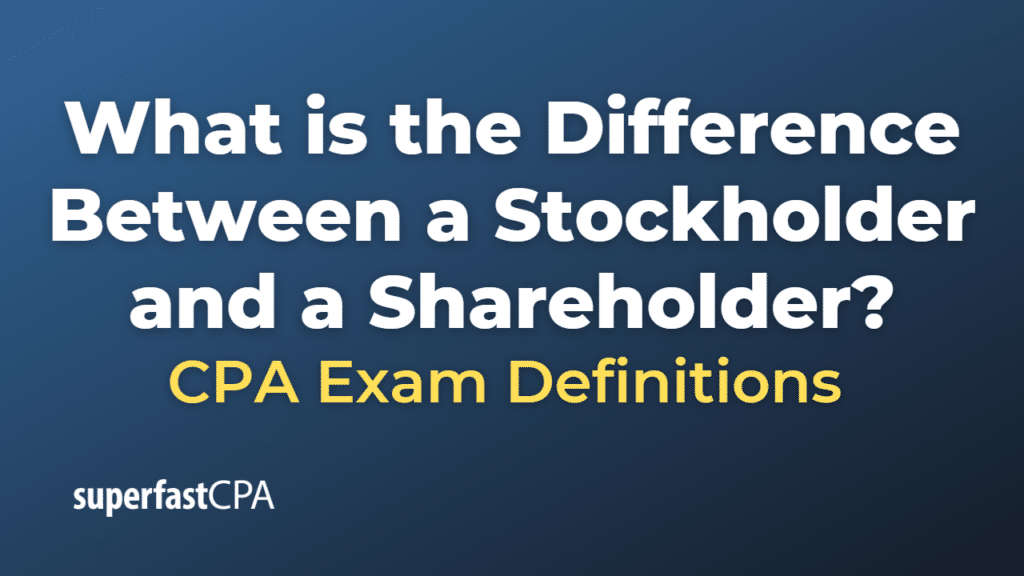Difference Between a Stockholder and a Shareholder
The terms “stockholder” and “shareholder” are used interchangeably and represent the same concept. Both terms refer to an individual, entity, or institution that owns at least one share in a company. As owners of a portion of the company’s capital, shareholders or stockholders have the right to a portion of the company’s profits in the form of dividends, and they typically have voting rights in the company.
There is no real difference between the terms, and their usage often depends on regional preferences. For instance, “shareholder” is commonly used in the United Kingdom and many Commonwealth countries, whereas “stockholder” is frequently used in the United States. It’s also worth noting that different companies may use different terms in their corporate communications, but the rights and responsibilities of a shareholder and a stockholder are the same.
Example of the Difference Between a Stockholder and a Shareholder
Let’s assume you decide to buy 100 shares of a company, say, Apple Inc. This purchase makes you a shareholder or stockholder of Apple. Regardless of the term used, it means the same thing: you own a small portion of Apple.
As a shareholder (or stockholder), you are entitled to certain benefits:
- Dividends: When Apple earns a profit and the board of directors decides to distribute a portion of these earnings to shareholders, you will receive a dividend. The amount will be proportional to the number of shares you own.
- Voting Rights: In most cases, being a shareholder means you have the right to vote on certain important company decisions. For example, shareholders typically get to vote on who serves on the board of directors. Each share usually entitles its owner to one vote, so owning 100 shares would usually mean you have 100 votes.
- Capital Gains: If Apple’s stock price increases, the value of your shares will also increase. If you decide to sell your shares at this higher price, you’ll earn a profit. This is known as a capital gain.
This example applies whether you call yourself a shareholder or a stockholder. Both terms mean the same thing and confer the same rights and responsibilities.













